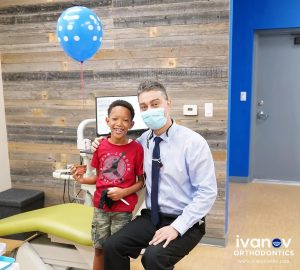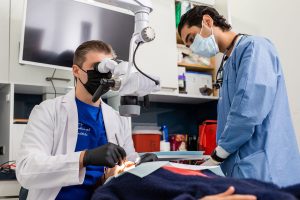How to Leverage South Korea’s Smart Healthcare Innovations for Better Patient Outcomes
4 min readIntroduction
South Korea is at the forefront of the smart healthcare revolution, with its medical industry undergoing rapid transformation through the adoption of cutting-edge technologies. These innovations are enhancing patient care, improving healthcare delivery, and driving significant growth in the industry. In this blog, we will explore the top 10 smart healthcare technologies that are transforming South Korea’s medical industry.
Telemedicine Platforms
Description of Telemedicine and Its Benefits
Telemedicine refers to the use of telecommunication technologies to provide healthcare services remotely. This includes video consultations, remote monitoring, and digital transmission of medical information. The benefits of telemedicine are vast, including increased access to healthcare for remote and underserved populations, reduced travel time and costs for patients, and the ability to provide timely medical care.
Top Telemedicine Platforms Used in South Korea
In South Korea, several telemedicine platforms are gaining popularity. Platforms like Doctor Now and TeleDoc provide comprehensive telehealth services, including virtual consultations, remote monitoring, and prescription services. These platforms are helping bridge the gap between patients and healthcare providers, especially in rural and remote areas.
Wearable Health Devices
Overview of Wearable Health Technology
Wearable health devices are electronic devices worn on the body that monitor various health parameters, such as heart rate, blood pressure, and activity levels. These devices collect data in real-time, providing valuable insights into a person’s health and enabling proactive management of health conditions.
Examples of Popular Wearable Devices in South Korea
In South Korea, wearable health devices like the Samsung Galaxy Watch, Fitbit, and LG’s smart health devices are widely used. These devices offer features such as heart rate monitoring, ECG, sleep tracking, and fitness tracking, empowering individuals to take control of their health and wellness.
AI-Powered Diagnostic Tools
Explanation of AI in Healthcare Diagnostics
Artificial intelligence (AI) is revolutionizing healthcare diagnostics by enabling faster, more accurate detection of diseases. AI algorithms analyze medical images, patient data, and other health information to identify patterns and anomalies that may indicate the presence of a medical condition.
Leading AI Diagnostic Tools Being Used in South Korea
South Korea is home to several innovative AI diagnostic tools. For instance, Lunit Insight CXR is an AI solution that detects lung diseases from chest X-rays with high accuracy. Another example is VUNO Med, which uses AI to analyze medical images and provide diagnostic insights for various conditions, including cancers and neurological disorders.
Electronic Health Records (EHR) Systems
Importance of EHR in Modern Healthcare
Electronic health records (EHR) systems are digital versions of patients’ medical histories. EHRs provide a comprehensive and up-to-date view of a patient’s health information, enabling better coordination of care, reducing medical errors, and improving overall healthcare quality.
Top EHR Systems Adopted in South Korea
Leading EHR systems in South Korea include those developed by companies like Samsung SDS and KT Corporation. These systems offer robust features, such as secure data storage, easy access to patient records, and integration with other healthcare systems, facilitating seamless communication and coordination among healthcare providers.
Mobile Health Applications
Overview of Mobile Health (mHealth) Apps
Mobile health (mHealth) applications are software programs designed to support healthcare delivery and management through mobile devices. These apps enable patients to monitor their health, access medical information, and communicate with healthcare providers.
Popular mHealth Apps in South Korea and Their Features
Popular mHealth apps in South Korea include KakaoTalk Health Connect and MyHealthway. KakaoTalk Health Connect offers features such as appointment booking, teleconsultations, and health tracking. MyHealthway provides personalized health management tools, medication reminders, and access to health records, empowering users to manage their health effectively.
Robotic Surgery Systems
Introduction to Robotic Surgery
Robotic surgery involves the use of robotic systems to perform surgical procedures with high precision and minimal invasiveness. These systems provide surgeons with enhanced control and accuracy, leading to better surgical outcomes and faster recovery times for patients.
Leading Robotic Surgery Systems in South Korean Hospitals
In South Korea, leading robotic surgery systems like the da Vinci Surgical System and the REVO-i system are widely used. These systems are employed in various surgical specialties, including urology, gynecology, and cardiothoracic surgery, enhancing the precision and safety of surgical procedures.
Remote Monitoring Tools
Benefits of Remote Patient Monitoring
Remote patient monitoring involves the use of digital technologies to monitor patients’ health status outside of traditional healthcare settings. This approach offers several benefits, including continuous monitoring of chronic conditions, early detection of health issues, and reduced hospital readmissions.
Top Remote Monitoring Tools Used in South Korea
Top remote monitoring tools in South Korea include devices like the iHealth Wireless Blood Pressure Monitor and the Dexcom Continuous Glucose Monitoring (CGM) system. These tools enable healthcare providers to track patients’ health data in real-time, providing timely interventions and personalized care plans.
Virtual Reality (VR) for Medical Training
Role of VR in Healthcare Education and Training
Virtual reality (VR) is increasingly being used in healthcare education and training to provide immersive, interactive learning experiences. VR simulations allow medical students and professionals to practice procedures, enhance their skills, and improve their knowledge in a safe, controlled environment.
VR Applications in South Korea’s Medical Institutions
In South Korea, VR applications like VR Medical Simulation (VRMS) and GIBLIB are used for medical training. VRMS offers realistic surgical simulations, while GIBLIB provides access to high-quality medical videos and VR content, helping medical professionals stay updated with the latest techniques and best practices.
Blockchain for Healthcare Data Security
Importance of Data Security in Healthcare
Data security is a critical concern in healthcare, given the sensitive nature of medical information. Blockchain technology offers a secure and transparent way to manage healthcare data, ensuring data integrity, privacy, and accessibility.
Blockchain Solutions Being Implemented in South Korea
Blockchain solutions like MediBloc and Healthcare Blockchain are being implemented in South Korea to enhance data security. MediBloc is a decentralized healthcare information ecosystem that ensures secure data exchange and management. Healthcare Blockchain provides a secure platform for storing and sharing medical records, protecting patient data from unauthorized access and breaches.




